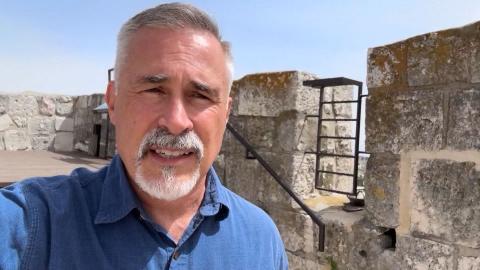New Israeli Survey Shows Surprisingly Strong Jewish Ties to Judea, Samaria
JERUSALEM, Israel –The results of a recent poll show that the often-controversial West Bank, or biblical Judea and Samaria, may not be so controversial among Israelis. Thousands of years ago, the Bible deemed Judea and Samaria as part of the land God promised to the Jewish people.
Since 1967, the international community has mainly referred to it as the "occupied" West Bank, where Palestinian Arabs want to establish a state.
A recent survey, conducted by the Israel Defense and Security Forum (IDSF) of nearly 1,200 Jewish and Arab Israelis, tried to measure how the two groups felt about this contentious real estate.
“What we found in this poll that was focused on Judea, Samaria, is that 70 percent of the Jewish society are very attached to Judea and Samaria, to our heritage and our history,” said Res. Brigadier General Amir Avivi, Founder and Chairman of the IDSF.
The survey was released ahead of the Israel Security Conference in Jerusalem, held by the IDSF in conjunction with the Israel Hayom newspaper.
The survey found among Jewish Israelis, 70% feel a historical connection, 63% an emotional connection and 48% a religious connection to the biblical area. By contrast, among Arab Israelis, 37% feel a historical connection, 33% an emotional connection and 32% feel a religious connection.
More than 2.7 million Palestinians and around half a million Jewish Israelis live in Judea and Samaria.
That could be changing, as Avivi says nearly half of Israelis are thinking about moving to these communities, often described as the biblical heartland.
“We have to understand that the area of Tel Aviv and its surroundings is already full. It's very, very expensive. It's like one big Manhattan. The young generation cannot afford buying houses in this region. So, they're looking east towards the mountains because this is in the center of Israel. Much better weather, by the way,” Aviv told CBN News at the conference.
Avivi’s organization, made up of 16,000 members who served in Israeli security organizations – including dozens of reserve duty generals – is dedicated to keeping the country’s security a national priority.
“We have been in the last three years doing extensive work with the young generation, explaining that Israel cannot exist without the Jordan Valley and Judea [and] Samaria. It's an area that is crucial, both spiritually, physically, and security-wise. And I think that this understanding is growing more and more in the Israeli society,” Aviv said.
He says while the Jewish connection to this land goes back thousands of years, it’s still alive today.
“Our existence here is a biblical prophecy that has come to be every day a miracle here. And I think that definitely the Jewish people here in Israel are getting really more and more attached and connected to really what it is to be a Jew in the Land of Israel,” Avivi said.
And he sees this land as the future of the Jewish people and their return, known as Zionism.
“This is really where we should settle, now and in the future. The spirit of Israel is being built up and without a connection to Judea (and) Samaria, there is no Zionism. Zionism is just an extension of Judaism. It's really understanding that this is the Land of the people of Israel.”




